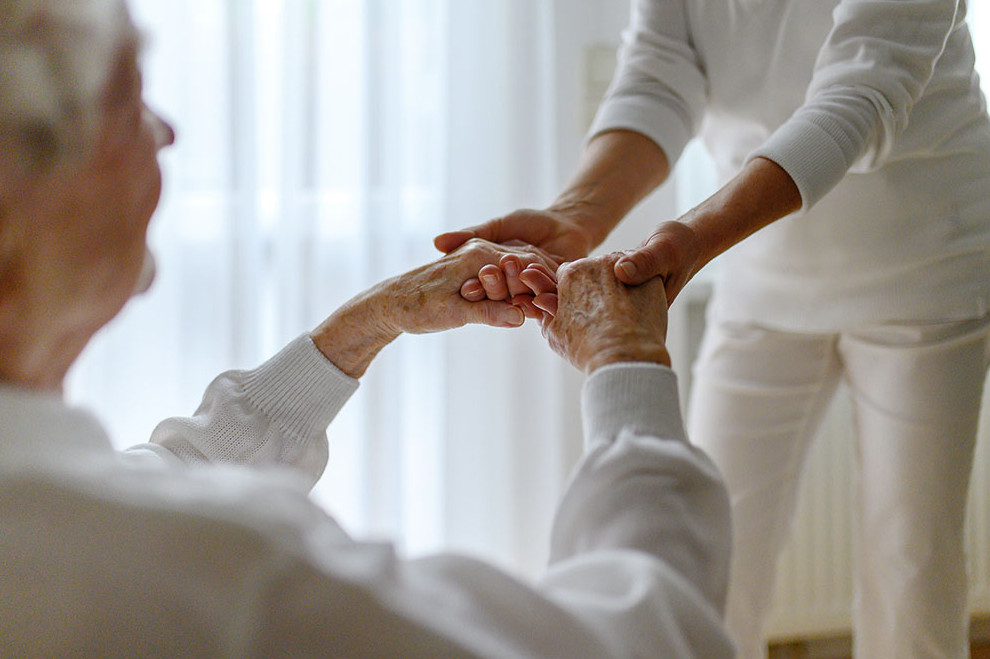Caregiving for family members is not easy. For example, you could have an elderly family member with dementia, Parkinson’s disease, stroke, or another debilitating disease that limits their physical and mental functions. If you try to care for a loved one in this condition, it might end up putting your health at risk too.
Psychosomatic Medicine recently published the results of a scientific study where a pneumonia vaccine was given to a control group, present caregivers, and previous caregivers. Medical researchers studied the antibody levels of these volunteers frequently to see if their immunity strength would change. The study ultimately found that present caregivers reduced their antibody levels after about 3 to 6 months, whereas the others had more antibody levels.
Reduced antibody levels are not even the main problem amongst caregivers. You don’t need a scientific study to see that family caregivers deal with substantial financial challenges and mental stress. After all, it is not easy to care for a weak family member suffering daily. You would probably hire a live-in nurse for them if you could, but few people have the money for such a professional home care service.
The healthcare industry depends on family caregivers tremendously. That is why adults needing long-term care get about 90% of it from family caregivers. If it weren’t for these family caregivers, the patients would be worse off or dead. While that might sound like good news for the patients, it doesn’t make things easier for the family caregivers.
Family caregivers tend to neglect their own health and wellness in order to worry about the health of their disabled family members. But that won’t benefit anyone in the end because family caregivers must take care of themselves to be good caregivers to their loved ones. Otherwise, it could lead to patient neglect and a host of other unwanted outcomes.
Caregivers Need Value-Based Care
Primary Medical Care Center offers value-based care services to family caregivers needing support. Value-based care uses a team-based care model focusing on the health and well-being of each patient. Our doctors use their knowledge, skill, and resources to help reduce the mental burden for both caregivers and their vulnerable family members.
For example, a caregiver and their patient will make an appointment to see a doctor at Primary Medical Care Center. The doctor gives them a longer than usual session so that they have time to get familiar with both the caregiver and patient. It might be the first time the caregiver has brought their patient to the doctor and attended their session together. But this is necessary because the doctor wants to emphasize to the caregiver the critical role they play in their patient’s health.
The doctor will question the caregiver about their current health and their feelings about being a caregiver to their family member. It will be a friendly, open dialogue where the doctor and caregiver casually discuss the situation without judgment or hard feelings. The doctor asks questions about the caregiver’s daily self-care habits to determine if they take good care of themselves.
Some example questions include:
- How much do you sleep each day?
- What do you eat on a typical day?
- How much do you exercise each day?
- How often do you go out with friends?
- Do you have anyone else to help you care for your loved one?
The caregiver’s answers to these questions will tell the doctor a lot about the caregiver’s current health status. Once they understand their health, the doctor can develop solutions to care for caregivers.
How to Give Caregiver Care
Many family caregivers don’t like asking for help because they might feel guilty about wanting help for themselves while their loved one is suffering more. When doctors interview caregivers, they need to phrase their questions in ways that make the caregivers want to answer them.
The best way is to put most of the emphasis of the questions on helping the caregiver’s loved one get better. So if the doctor can ask a question about the caregiver’s health as it relates to improving the health of their loved one, then the caregiver might be more willing to answer it. Then it will be easier to understand the caregiver’s health status and whether they are taking care of themselves.
If the doctor can get the caregiver to admit to their emotional pain and suffering, they may be more willing to listen to professional advice on how to overcome it. The doctor may suggest various local support groups where caregivers gather together and share stories and ideas regarding their situations.
Primary Medical Care Center has social workers on staff too. We can connect caregivers to our social workers so that caregivers and their loved ones can get the support they need for better health.
Contact Us
Are you a family caregiver to an elderly adult or disabled person? If you need help dealing with their health or your health, call us at (305) 751-1500 to make an appointment to talk with one of our qualified doctors.
